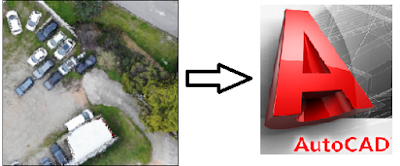Why Are We Here?
I arrived at the office of the HOD in a university on his invitation for a meeting. I was guided towards the classroom where he was waiting for me. He introduced me to the students “Mr. Imran Anees has been working in the industry for more than 15 years. He will be teaching you Surveying & Geodesy. According to the timetable, it is his class today...” and then, telling me to “meet me in my office after lecture” in a soft and low tone, he left me in a classroom full of students anxiously awaiting my next move.
In routine, a typical teacher would naturally start introductions with his own personal & teaching biography, educational history, course overview, number of lectures, learning materials, assessment and grading policies etc. Similarly, he would also ask the students to introduce themselves by telling their name, educational background, interests, place they come from, previous courses etc.
I was actually expecting a meeting and wasn’t prepared for this role of a teacher at all. So, with the students of the classroom, all eyes on me, I cleared my throat and posed a question “Why am I here?” … To their surprise, I followed it up with a question to them also, “Why are we here?” … and before proceeding to roster, I just wrote the same sentence on the white board. Then I asked them to introduce themselves along with honestly answering the question.
This was a new take on the traditional introductory sessions the students were actually familiar with. Starting from the front row, I was introduced with a name after another, places they came from, their last academic degree, etc. There wasn’t anyone who readily made an attempt to actually address my question. I had to remind them that it was mandatory to answer my question. As unconventional as it was, I could sense that none could give it some thought all of a sudden and that most of them were quite hesitant in answering it. The situation was drawing more interest in me and I was getting curious for an honest answer. I gave them a break and asked them to email me an answer within 24 hours. Around 20 students responded within a few hours. The different responses are summarized below:
1. I just wanted to be post graduate regardless of the field so I am here.
2. I am not much interested in Geomatics but I have no other option as I failed to get admission in desired field of interest for post-graduation.
3. MS is a higher education degree which is now mandatory to get a good job and promotion. I need this degree to get promoted so I am here.
4. I am working in the Geomatics related field for 8 years. Now I feel it mandatory to get higher qualification and knowledge so I am here.
5. I am a graduate civil engineer by chance and working in the field of surveying and mapping which is part of Geomatics. Fortunately, I got admission in the field of interest so I am happy to be here.
6. I wanted to study in this university because it is located in a metropolitan city where more job opportunities are available so I am here.
7. I am a geologist. I am here primly for a post-graduation degree which may help me to get a good job.
8. I am an environmental scientist. After graduation, I worked as teacher in a school as teaching is considered as a suitable for females but it did not work in my case. In order to get post-graduation and enhance my skills in environmental science, I am here.
9. I am graduated in urban planning. I got advice from seniors to post graduate in Geomatics as it is related to my native field so I am here.
10.I did my graduation in a field where Remote Sensing and GIS were major subjects. In my opinion, life at campus is better than professional life so I am here.
11.I succeeded to get the admission in other department but I preferred to study here because of evening classes as I do the job in the morning.
It was clear that the students in general had opted for Geomatics only by a random chance, and against their will or ambition. They were in that classroom because they got an admission in Geomatics.
As soon as a student passes the 12th standard (Higher Secondary school), he/she enters a critical era with the question “What to do next?”. This question sometimes transforms into a dilemma of which field of study to select, leading to unsure career prospects. In some cases, parents decide their career-to-be and announce it proudly on different occasions that their child will be a doctor, engineer, artist, actor or any other professional. No doubt, it is every parent’s desire to see their child well settled and happy in life, but I consider that pursuing a career should never be an imposed choice. The interests, skills, financial conditions and current career trends must all be weighed-up and the child must be made aware and educated to actively select a preferable career choice. Besides the parents, the teacher’s role is also vital in training the students to recognize their own talent and develop themselves accordingly. Guided educational tours and interactive sessions with professionals, industry specialists and job recruiters under an academic umbrella are useful in establishing and nourishing an idea in each student about various occupations, fields, professions and roles.
Prospects of today’s world are changing over with diversities in the choices confronted nowadays. No one should be deprived of a right to choose in such times of stiff competition. However, my recommendation favors a mutual assessment along with combined wisdom from the real-world experience of parents and teachers to be considered in account to take a career-oriented decision.







Comments
Post a Comment